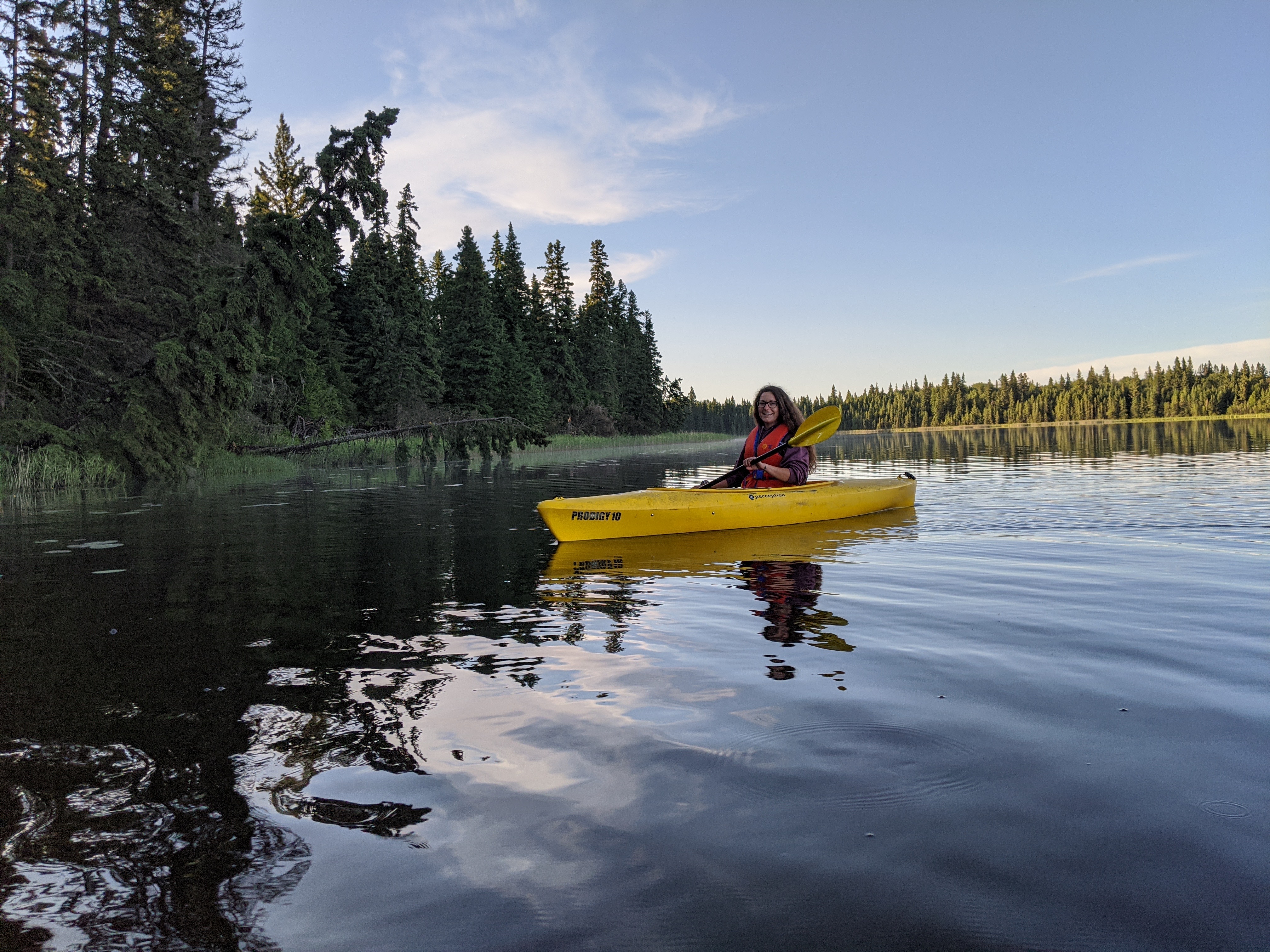
Danielle Spence
Danielle is a PhD student in Environment and Sustainability.
How is your research tackling some of the major challenges facing humanity in the 21st century?
My research focuses on understanding cultural eutrophication, which is an excess of nutrients in a water body resulting from human activities. Eutrophication of lakes often results in the growth of algae, some of which can produce toxins that are harmful to human and animal health. Globally, eutrophication and harmful algal blooms (HABs) are worsening, threatening the health of aquatic ecosystems and the quality of freshwater resources for drinking and for human enjoyment (e.g., fishing and swimming). Through my doctoral research, I am seeking to understand what drives the proliferation of HABs, how eutrophication and HABs affect human use and enjoyment of lakes, and how people would benefit from reducing eutrophication and HABs.
How does your work align with the UN’s Sustainable Development Goals?
My research aligns with SDG 6 (clean water and sanitation). Cultural eutrophication threatens the quality of water available for drinking and other uses. Treatment of drinking water can remove the toxins produced by HABs, but the costs to treat bloom-affected water are greater than for clearer, cleaner water. By reducing eutrophication and HABs, there are less risks to human and animal health, the costs to treat drinking water could be reduced, and the availability of clean water resources would be greater.
What motivated you to do what you now do?
I have always felt a special connection to the environment and specifically to water, mostly because I grew up next to a lake and spent my summers swimming and fishing. Thus, when I decided to pursue research in environment and sustainability, I was drawn to the protection of water resources. One of my core goals in my research has been to produce work that will be meaningful and useful; however, I often felt the disconnect between what I was researching, why it mattered, and how it could be used to make a difference. In my current research, I endeavor to take a more participatory approach to ensure that the outcome is meaningful to the public and useful for decision-makers.
What course have you taken recently that you’ve loved and why?
PhD students in SENS are required to take ENVS 809 – PhD Seminar in Sustainability. Although this seminar is challenging, it provides students with the foundation to engage in higher level thinking, as well as to articulate how our field of research fits within, and contributes to, the broader theme of sustainability. The lectures facilitated discussions between social and natural scientists, inspiring ideas that I would have otherwise never had and shifting the way I have approached my research.
What book (of any genre) would you recommend to a new student starting a program at SENS?
I recently read Dr. Jeff McDonnell’s book, ‘Navigating an Academic Career’. It is a short book with pragmatic recommendations for PhD students, post docs, and those in the early stages of an academic career. I found the advice useful for those looking to build their academic profile in a deliberate, directed manner.

